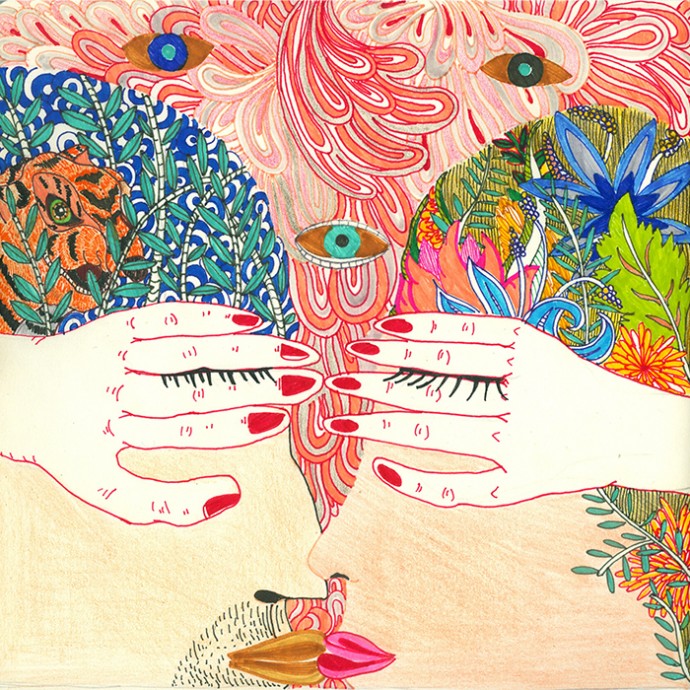I have always considered arranged marriage to be archaic and against freedom of choice, but there are countries where people trust that this method will make their marriage prosperous and provide the couple with a full and happy life. Harshad from India, even after having had his own experiences living in Western countries, still trusted his parents to make this choice for him. Now, after marrying, he tells Sensa Nostra what it’s like to get married without knowing your future wife.
My name is Harshad Arun Sonawane and I’m 29 years old. In India, most names have their own meanings. The meaning of Harshad in the world’s oldest language, Sanskrit, is “the one who gives happiness to others.” Arun is my father’s name, and means ‘sun’.
I’ve lived in India since I was born. I like my country because here people live together happily and cooperate with each other. Here in India, there are lots of religions: the majority are Hindus, but we also have a significant amount of Muslims, Buddhists, and Christians. Furthermore, all these religions have their own sub-religions, so you can imagine the diversity of cultures that live together in India.
Last year I went to Germany for the first time to study. I was excited to see neatness in the streets, punctuality in train and bus timetables, and such advanced development in industry and infrastructure. Even though there were lots of people in the streets, on buses and on trains, in Europe there is not such a sense of community. Fortunately, it’s a born talent in every Indian to be able to survive in any country, due to our talkative natures. But I didn’t take easily to local food! European food is tasteless! They don’t add spices; they only eat salads, sausages, breads… In my country, we have such a big variety of food that I can eat a different dish every day for a month or more.
Obviously, there are a lot of differences in our lifestyles, but even knowing that, I’ve never put up barriers to having a girlfriend in Germany. European girls have beautiful fair skin, blue eyes and black or blonde hair; but as I only stayed for 6 months, I had no chance. Furthermore, for me it would be hard to live the German lifestyle for the rest of my life. Germans and most Europeans seem to me like cold people. I mean to say that there is no social life in Europe as there is in India. I always had it in mind to go back to my country, and it always scared me to think that the girl would want to come back to my country, marry and live with my parents, which would be pretty hard. Not to mention that living together without being married is a crime for Indian people.
One morning, while I was living in Darmstadt, I got a call from my mum. She said she liked a girl in our caste and religion and she wanted me to meet her when I returned to India, and marry her. I didn’t know my parents had found a girl for me, but I knew it would happen sometime.
Indians strongly trust in their parents. They’ve given me life and brought me up, so for me, my parents are my gods. Because of them I had the chance to come in to this world, so I think they have the right to make decisions in my life. That’s why it’s common that parents search for a life partner for their children, although the boy and girl also have the right to accept or reject their parent’s choice.
When I finished my studies in Germany, as ritual dictates, I went to Hemangi’s home (200 kilometres from my home) with my parents, to see her. In India, the girl’s father invites the boy and his family to see his daughter. If the boy and his family like her, and the girl likes the boy and his family, then they can marry. It’s very important that the girl meets the boy’s parents, because following tradition, she has to live with them in the same house after marriage.
When I first saw Hemangi, I was very shy. Our parents asked us to go away somewhere to get to know each other better. As I’m a person who believes in psychology, I asked her some questions relating to her way of thinking: her expectations of the ideal husband, if she wanted to have kids in the future, and her opinion on living with my parents. She answered all of my questions in a mature and sensitive way, which gave me confidence in our future life as a couple. After a few questions, I asked her if she wanted to know something more about me. Hemangi, my current wife, said, “I cannot judge a person through an exam and questions, as you have. I feel good vibes from you in my heart and I believe my heart, so I accepted you as my life partner from the very first moment I saw you.“
As it was difficult for me to decide whether to marry a girl after ten or twenty minutes, I was confused. I requested of her parents to let me tell them my decision after some days, and went back home. I got permission to talk to Hemangi by phone during the following days, and we discussed lots of things, such as likes, dislikes, etcetera. Then, after a week, I decided that I should marry her.
To make that decision I also checked Kundali, which is a method to find out if a couple is a good match. Kundali is a database and code based on the date and time of birth of a person, relative to the position of the Earth, planets, and stars. Based on comparisons between the database of the boy and girl, an Indian priest is consulted as to whether the marriage will be successful, or a failure. Kundali is a scientific method developed by very intelligent people in ancient times. I believe in this method as being grounded in the science of human life, and in how the position of planets affects human behavior in daily routine.
The best thing was that Hemangi’s Kundali fit with mine 100%, so according to Indian culture, we’re made for each other. It’s very rare that Kundali fits perfectly. Only one in one million people get a match of 100%, so it forced me to really decide to marry Hemangi. One week later I informed her parents that I was ready for the marriage. Maybe is hard to understand for you how I could make such a difficult decision in one week. But in Western countries, guys and girls live together for some time to decide whether they are a good match, and finally, decide whether to marry or not—but even after marriage there isn’t any guarantee it will work.
In India, about 90% marriages are successful, unlike in many other countries, where the rate is about 60 or 70%. This is because living with our parents teaches us about their experiences with married life; they guide us on how to handle small issues and how to coexist with each other.In my opinion, the most important thing in marriage is to agree with each other’s likes and dislikes, and to make sacrifices for them. That’s why for us sex is not as important a thing as it is in other countries.
For me, sex is not the only thing to decide whether a person is made for you or not. Sex is only a necessity for a human, like food, clothes, and a home. Just because the sex is good, doesn’t mean a marriage will work. Married life goes beyond sex: it’s an attachment of two minds and hearts. In other countries, the culture is different. Boys and girls make a decision about a partner in their 20s or 30s, and they don’t think with their brains. The only thing they see is the sex, because this age period is driven by only that. But life is longer, and after the decrease of interest in sex, the boys and girls start to be disinterested in each other, because their relationship is only based on sexual attraction and not on a mature relationship from heart to heart. This is completely my personal opinion.
On 25th November, 2013, Hemangi and I got married. She was 22 years old and I was 28. My wedding was a large get-together. We booked a large wedding hall; almost three thousand people attended. Most of them were my relatives, Hemangi’s relatives, and neighbors and friends. We took an oath in front of these people to live our lives happily together. After marriage, Hemangi came to live in my house forever. I’m very happy to be married to Hemangi. We’re truly made for each other, and for now, I only want to travel to other countries if it’s with my wife.







